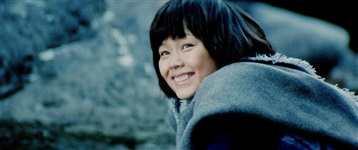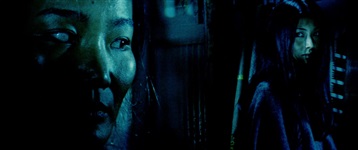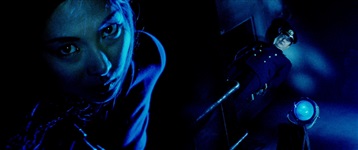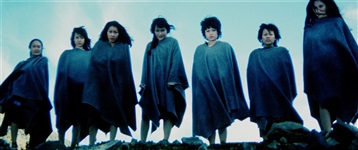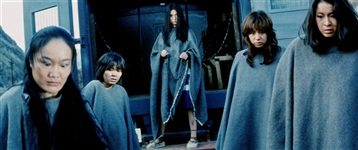Female Convict Scorpion: Jailhouse 41 (1972)
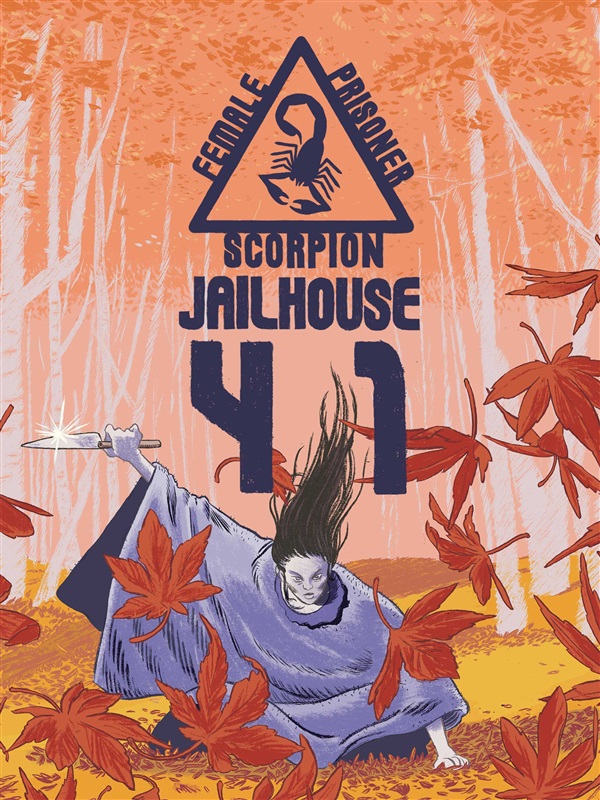
This is the second film in the series, following on from Female Prisoner 701: Scorpion, so minor spoilers can be assumed
Jailhouse 41 begins with Nami Matsushima back in prison after taking revenge on her former lover, now having spent 12 months in solitary confinement, shackled hand and foot in a damp basement cell. A new warden arrives, an idealistic man who believes in the ability of the prison system to rehabilitate its inmates, so the old warden decides to bring Nami out to demonstrate how naïve he is.
A little while later Nami manages to escape again, this time with a group of inmates who variously idolise, fear and despise her. The women take refuge in an abandoned town, whilst the prison guards set out to hunt them down.
This was the first film I saw in the series, as it was available on a poor quality but subtitled DVD years before the other films. It certainly had me wanting to see the rest. Watching it again now I think it's a less well rounded film than the first, but it is just as stylish and rather more surreal, doubling down on both the arthouse and grindhouse sensibilities of director Shunya Ito.
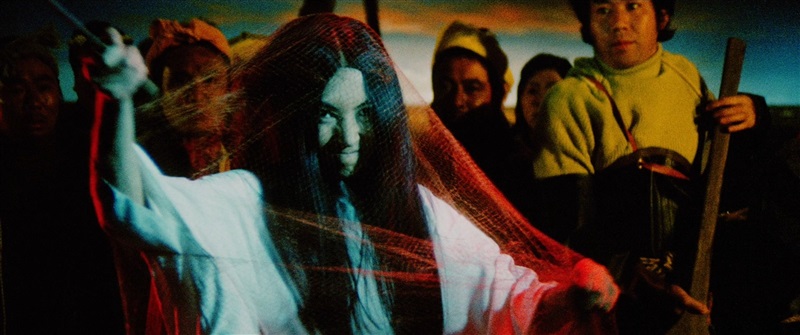
The film's symbolism is more overt and easier to parse this time round, at least partly thanks to a wonderfully theatrical sequence where Ito more or less spells it out for us. The prison is Japanese society, the inmates are women trapped by its traditions and outcast when they go against them. Nami - as Sasori - is liberated by refusing to conform and rebelling against society's expectations of how a woman should be, but in doing so suffers fear and resentment from those who are still shackled by them.
In another scene a group of Japanese men reminisce about those simpler and better times when they could rape women at gunpoint during the war in China. Shortly afterwards the escapees have them at gunpoint and force them to chant "Banzai! Banzai!" (a traditional war cry for Japanese soldiers), showing them to be pathetic before these liberated women.
The fact that it is specifically Japanese society being condemned is shown by the final scene, where Sasori is seen through the warden's eye (literally) laughing in front of the flags of various Western nations before passing her knife to the other inmates, who pass it along amongst themselves as they run towards emancipation. I guess Shunya Ito was a bit naïve too.
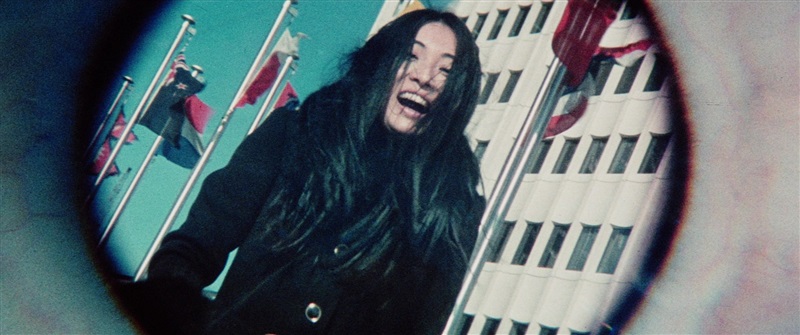
Jailhouse 41 has far less nudity than the first film, but it is probably more violent - at least the women give as good as they get on that front though. Meiko Kaji speaks even less than she did last time, only two lines in the whole film that are delivered more than an hour in. She does get to sing more though - not her on screen character, obviously, but via a soundtrack that features both the classic Urami Bushi and new theme Onna no Jyumon that highlights this film's particular themes.
Unfortunately I was distracted on this viewing by the colour grading on the bluray from Arrow Video, which sees almost the entire film rendered in shades of blue. Comparing it to the Tokyo Shock DVD the difference in some scenes is dramatic, and there's no way the film could have looked like this originally because the regrading in some shots would only be possible with digital tools that wouldn't be available for decades.
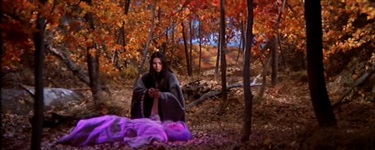

Shunya Ito does use a blue spotlight in some scenes to isolate a character from their environment, but it is used sparingly, an effect which is largely lost on the bluray since everything is blue already.
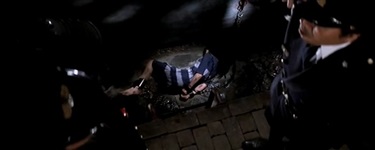
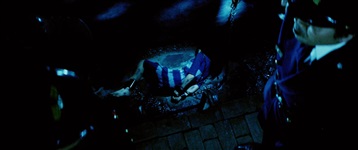
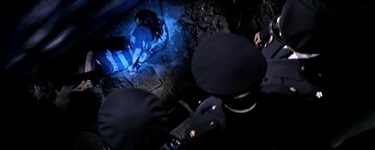
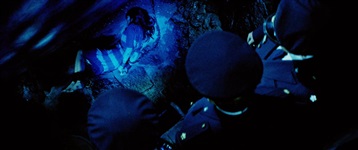
It is a very vivid look, but whilst some shots look great others look absurd, which took me out of the film a bit (especially as I kept stopping to compare with the DVD so it took me over 2 hours to finish the film). The improvement in detail and contrast is undeniable, but the widespread revisionism of the colour grading of historical films on HD transfers does bother me... future audiences are going to have a very wrong impression of how pre-digital era films looked.
As such I'm partially scoring it based on previous viewings for this review, when the dazzling style and surreal excursions made it my favourite of the series. I think the original probably is the best, due to the power of Nami's evolution from naïve victim to avenging angel, but Jailhouse 41 is certainly a gripping follow up that expands on the themes of the original and their forceful cinematic expression.
Cast
Crew
| Director | |
|---|---|
| Production Company | |
| Writer | |
| Producer | |
| Editor | |
| Cinematographer | |
| Art Director | |
| Soundtrack |
